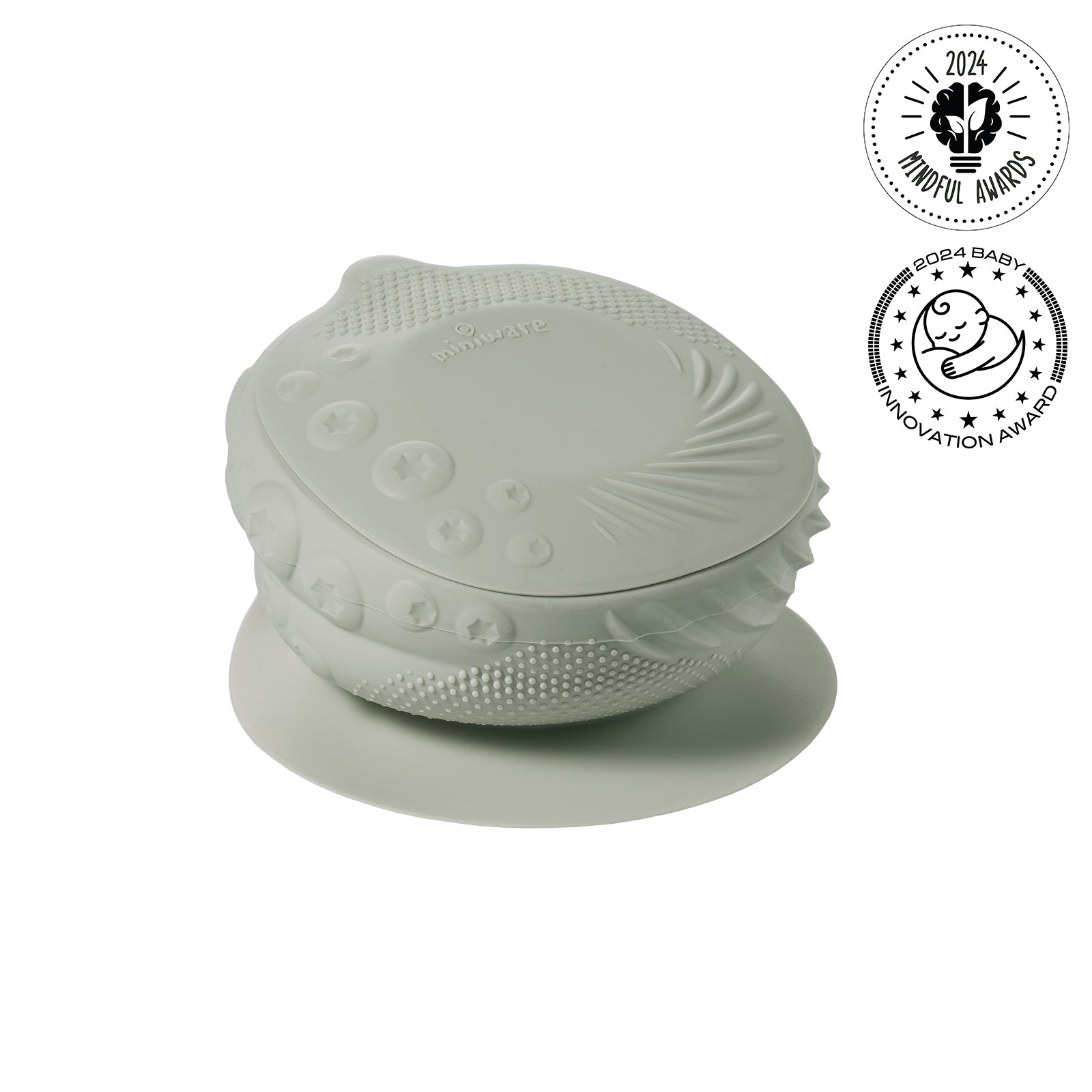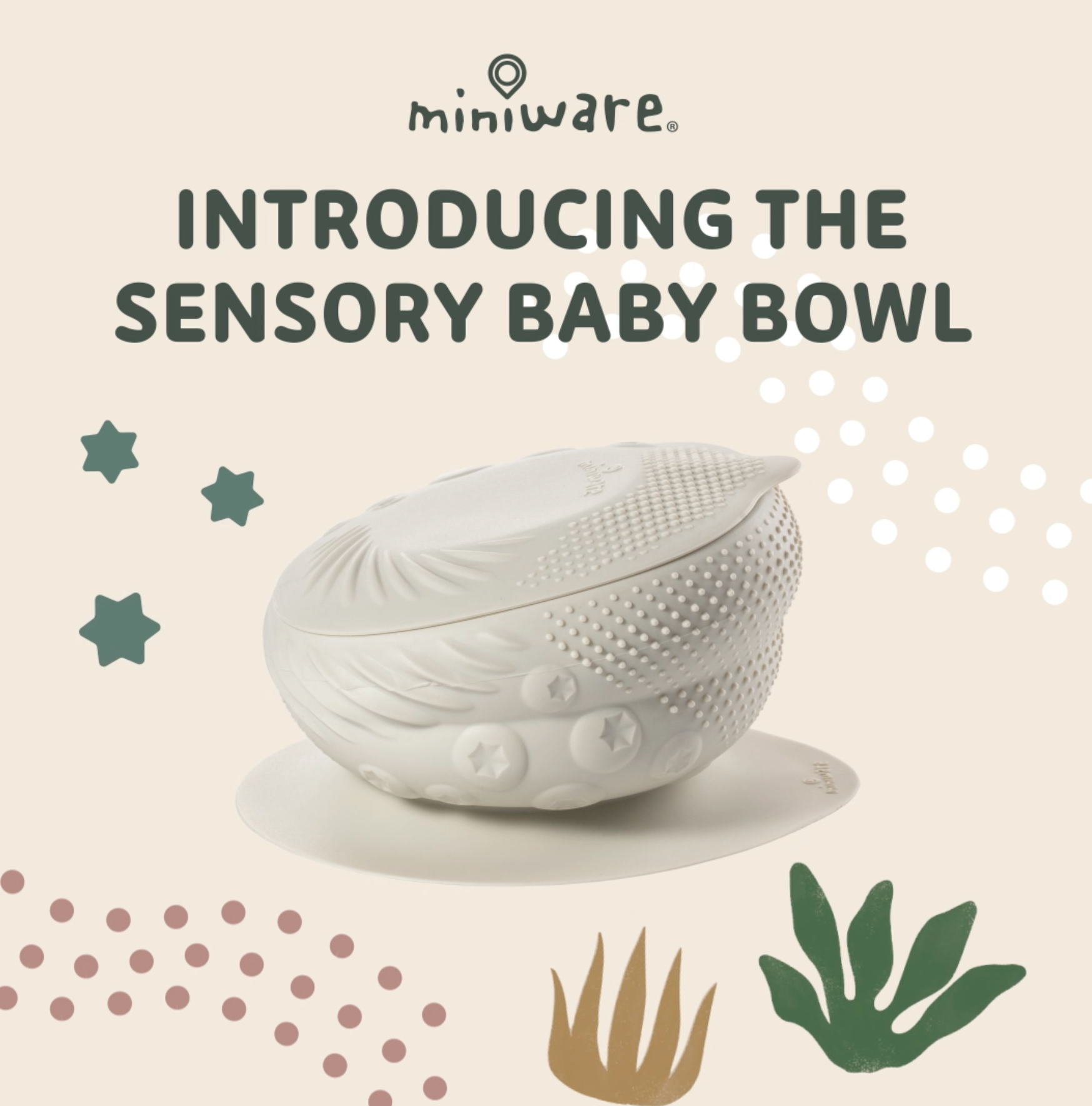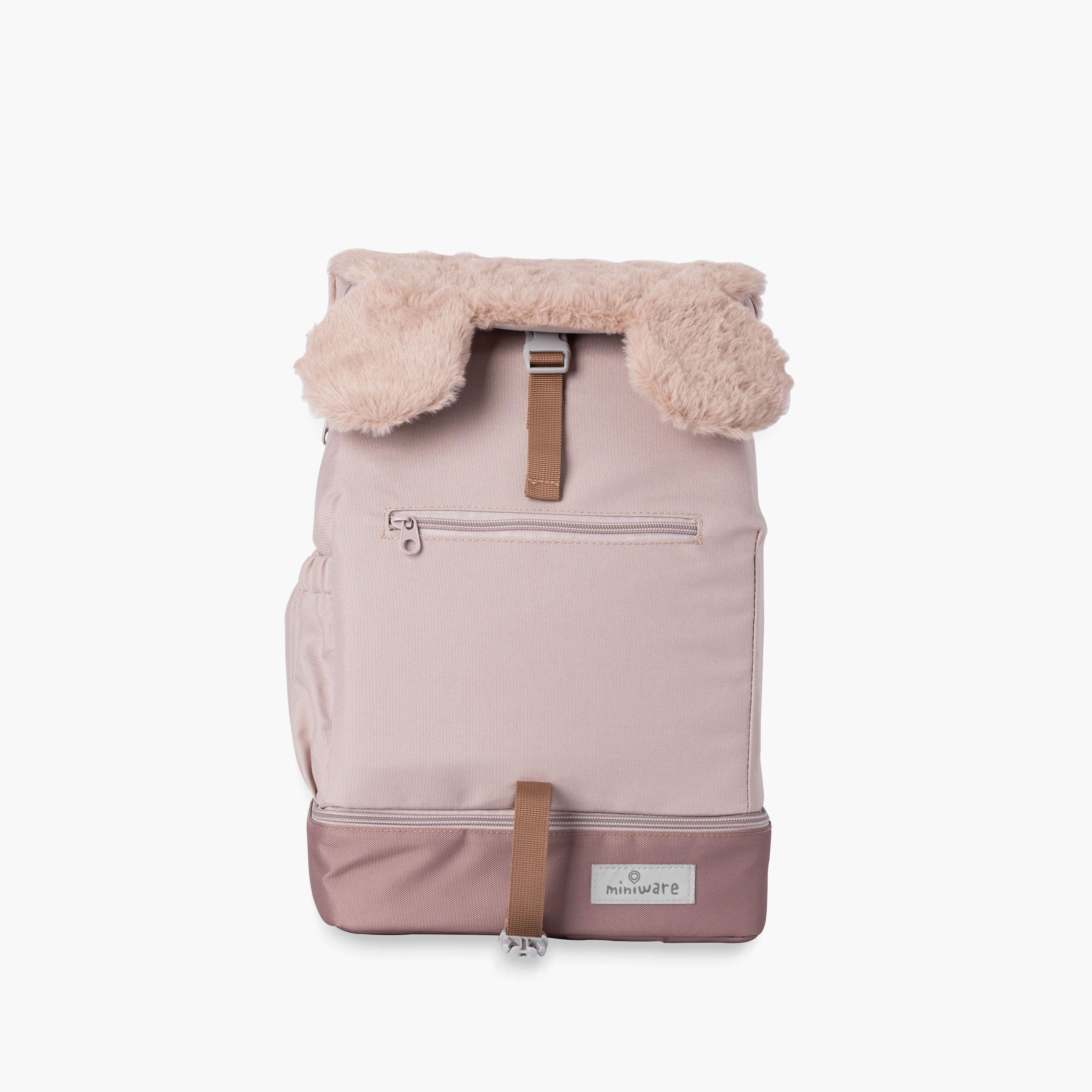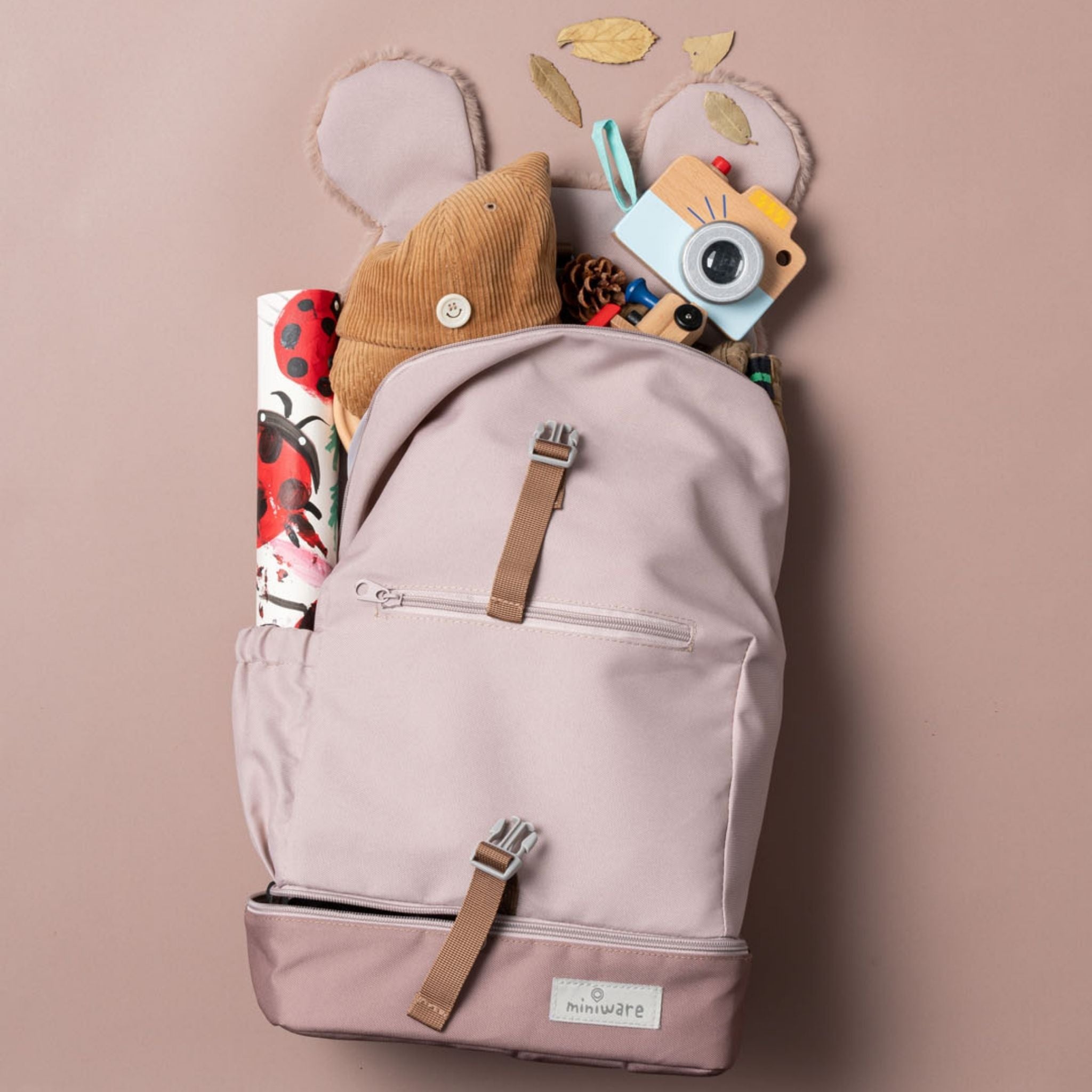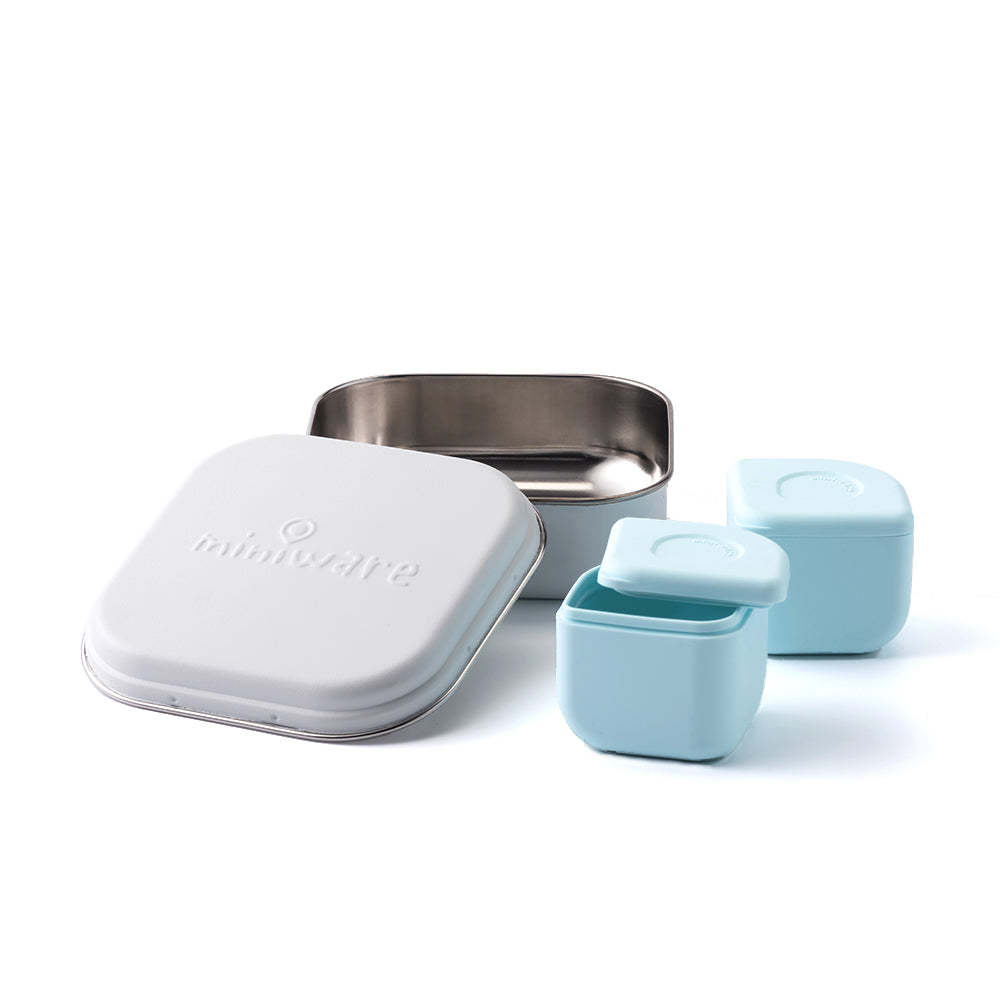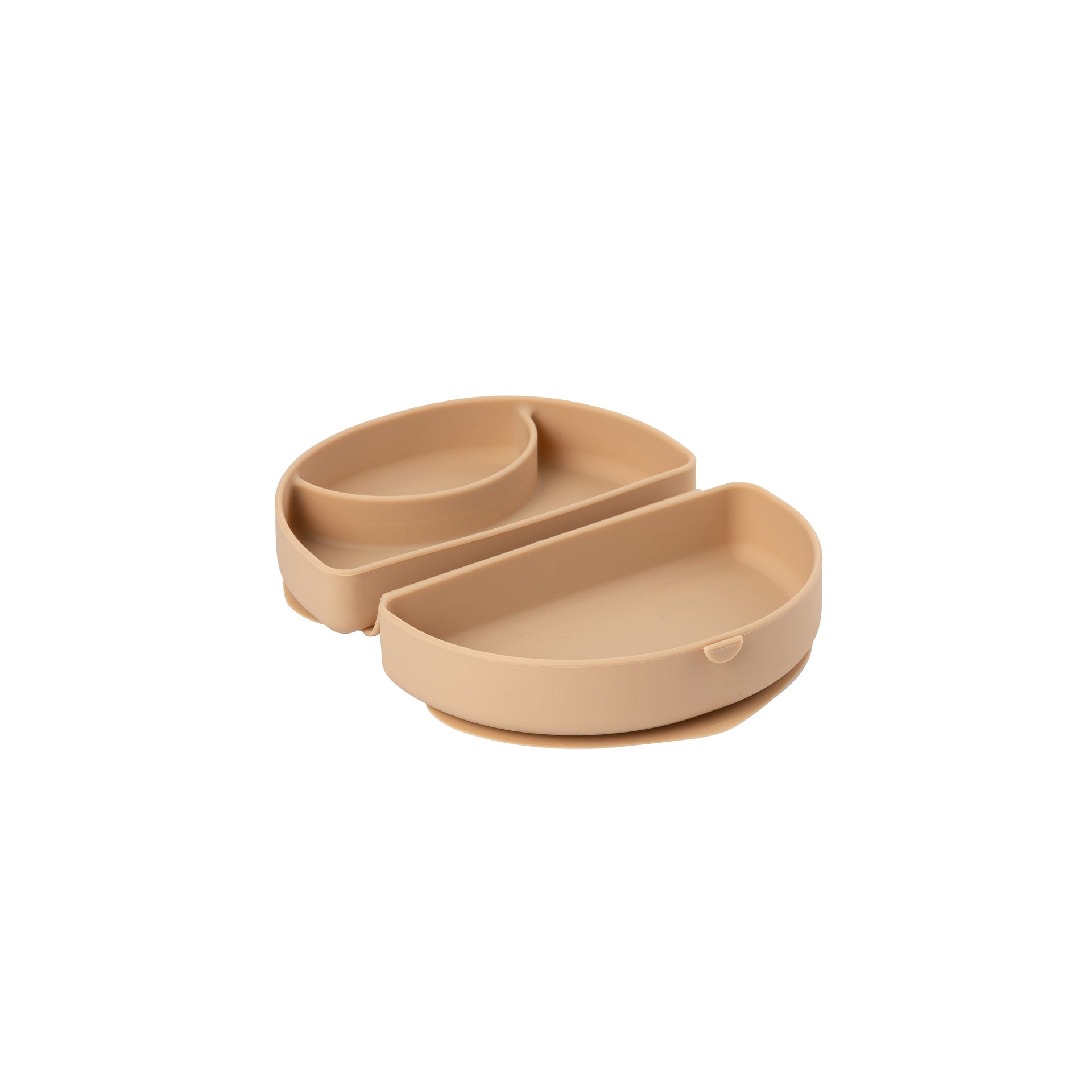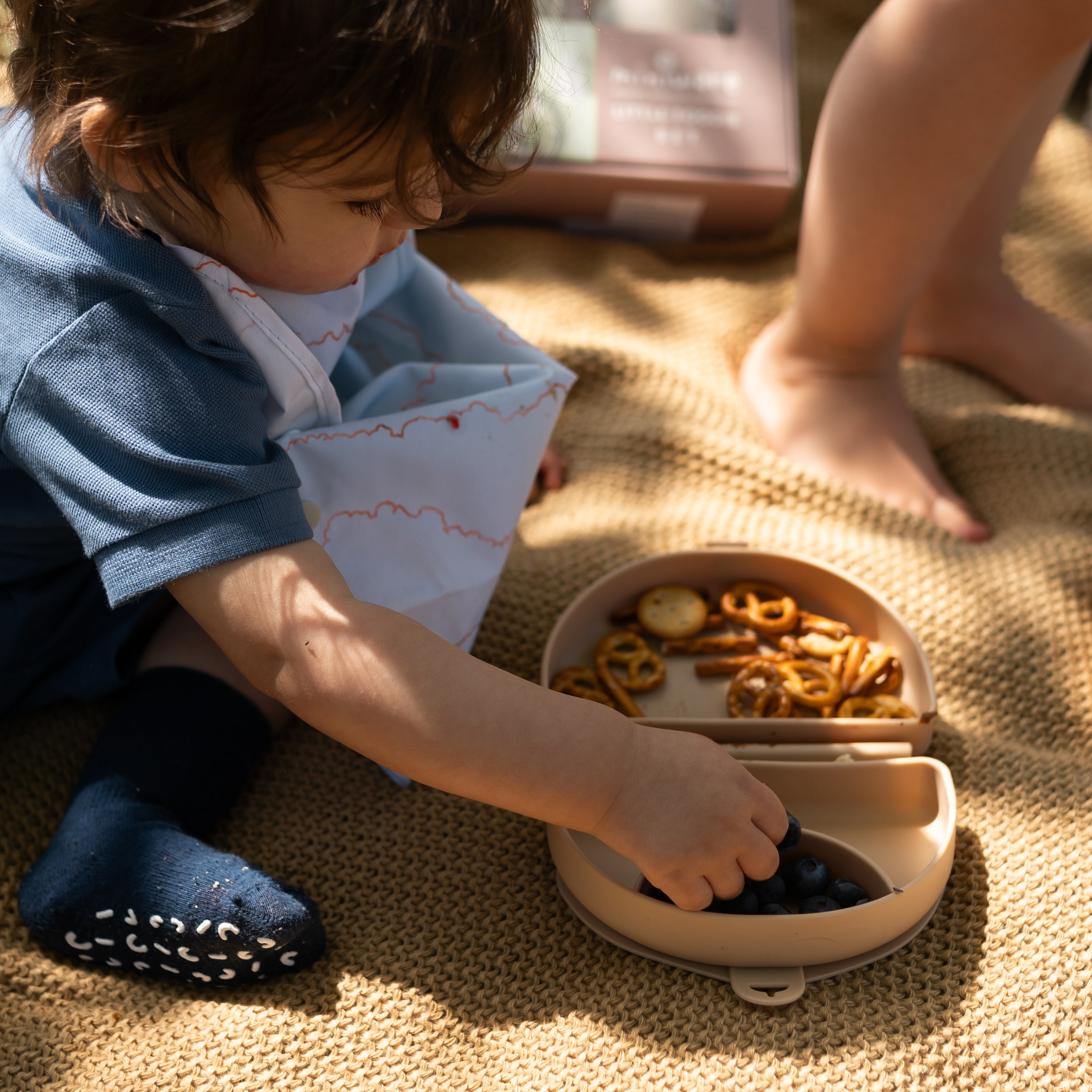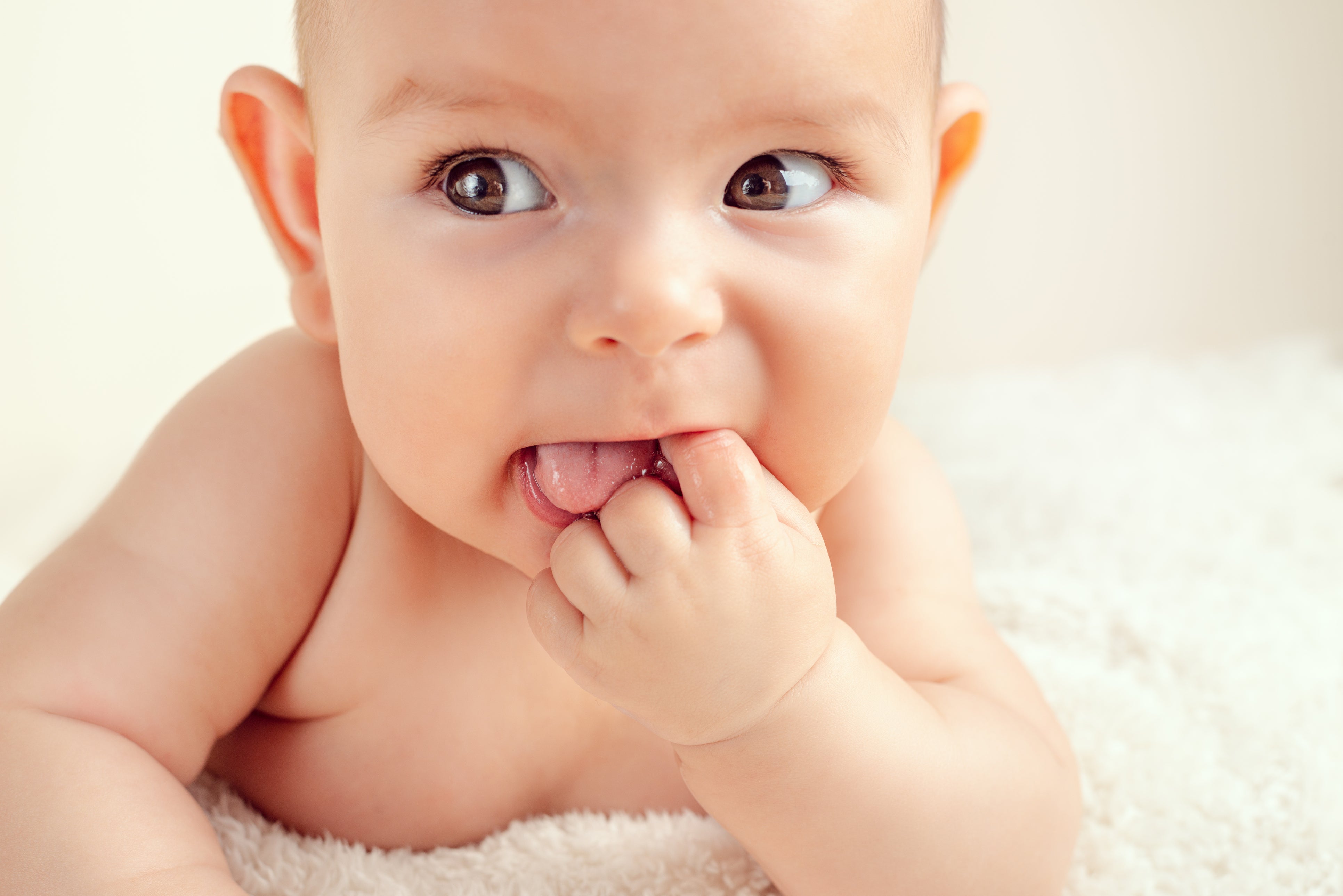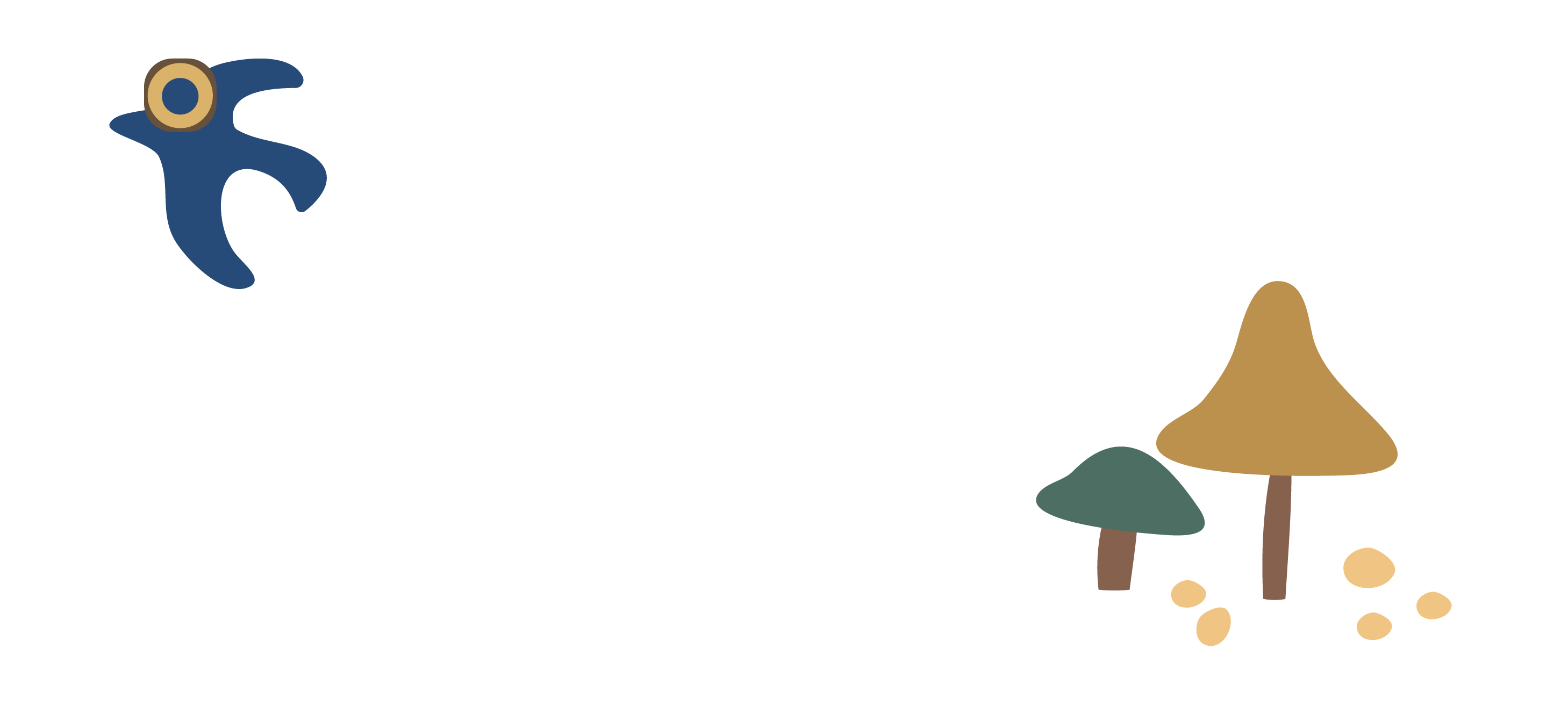Teething is a difficult time for babies and parents. The pain and pressure of new teeth can cause a multitude of problems, including constant drooling, crying, and difficulty sleeping or sleeping through the night.
It’s hard physically and mentally on parents and children alike! With neither party sleeping well, you can expect more tears and tantrums than normal. And naturally as parents, we are filled with worry and concern over the symptoms and discomfort our baby is experiencing. Teething is quite a long process, beginning at around six months until your child is a toddler, but with these baby teething tips for all stages, both you and your baby will get through it!
When do babies start teething?

Although every baby develops at their own pace, most will begin teething around 6 months of age. Here are the classic signs of teething in infants:
- Drooling
- Chewing on toys, fists, and other solid objects
- Irritability
- Sore gums
Your baby may develop a low-grade fever as well, but teething should not cause high fever or diarrhea. If your baby does have these last two symptoms, then you should schedule a doctor visit.
Baby Teething Tips
At around six months, your baby’s first teeth are emerging. Some babies may cut teeth a little earlier or later and signs and symptoms like gum soreness can appear before teething begins. When you notice your little one is feeling discomfort, here are some things that can help:
Rub the gums. With a clean finger or moistened gauze pad, apply gentle pressure to the gums. This can help alleviate pain.
Provide appropriate teething toys. Teething toys are soft and feel good on baby’s gums. Harder toys may increase pain.
Chill teething toys. The cold from chilled teething toys, spoons or even a clean, cold, washcloth can numb the gums for quick relief.
Fill a bottle or use a straw to encourage sucking. The pressure can alleviate gum pain.
Wipe the drool. You can expect your baby to salivate more than normal during this time. The accumulation of excess saliva can cause a rash around the mouth, chin and neck causing even more problems. Clean your baby’s face regularly, including neck creases. A terry cloth bib may also be helpful during this time.
Try OTC pain relievers. If your baby is really in distress, children’s acetaminophen or ibuprofen may be appropriate to reduce inflammation and reduce pain.
Teething Tips for Toddlers
Unfortunately, a full set of baby teeth takes about three years to fully emerge. After the front and bottom teeth come in, your growing baby will need incisors and of course, molars. These typically come in two stages at around two and three years old. Many of the baby teething tips above will also work for toddlers but here are some toddler-specific tips for solid food eaters.
Offer cold foods and beverages. Chilled or frozen yogurt, cold applesauce, hard, cold vegetables (carrot or cucumber) or fruit chunks can reduce gum swelling and pain while providing a nutritious snack. Ice water in a sippy cup will reduce saliva and pain while keeping kids hydrated.
Try teething biscuits and bagels. Hard cookies and biscuits that toddlers can suck and chew on will provide pain-relieving pressure onto the gum. Large chunks of chewy bagels work too! Prefer homemade? Here’s a recipe for Healthy Homemade Teething Biscuits from Super Healthy Kids.
